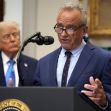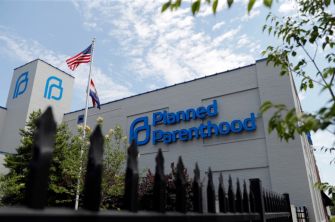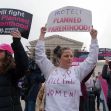In a 6–3 decision issued Thursday, the U.S. Supreme Court upheld South Carolina’s decision to exclude Planned Parenthood from its Medicaid program, even for services unrelated to abortion. The ruling in Medina v. Planned Parenthood South Atlantic (PPSAT) interprets Medicaid’s "free choice of provider" provision and could open the door for other states to follow suit.
The primary issue in the case is whether individual Medicaid recipients have the right to sue when states remove a provider from the program. The conservative majority of the Court sided with South Carolina, stating that patients cannot challenge the state’s exclusion of Planned Parenthood based on its abortion services, even though federal Medicaid funds cannot be used for abortion in most cases.
Justice Neil Gorsuch, writing for the majority, argued that Medicaid law does not clearly establish an individual’s right to choose their provider and therefore does not create grounds for private lawsuits. “Congress knows how to create clear rights,” Gorsuch wrote, pointing to the Federal Nursing Home Reform Act, which explicitly gives residents the right to choose their attending physician. “But that is not the law here.”
The decision effectively removes a key enforcement mechanism for Medicaid patients, according to dissenting Justice Ketanji Brown Jackson, who was joined by Justices Sonia Sotomayor and Elena Kagan. Jackson wrote that the ruling undermines what Congress intended by the free choice provision and strips vulnerable Americans of “a deeply personal freedom: the ability to decide who treats us at our most vulnerable.”
Planned Parenthood currently receives about $90,000 annually from South Carolina’s Medicaid program, a small fraction of the state’s overall Medicaid spending. Though federal law restricts those funds from being used for abortions, clinics provide a wide range of services, including contraception, cancer screenings, and STD testing, often in areas with few other providers.
South Carolina Gov. Henry McMaster issued an executive order in 2018, removing Planned Parenthood as an eligible Medicaid provider with the intent to block the use of federal funds for abortions. This move was initially blocked by a lawsuit filed by Medicaid patient Julie Edwards, who argued that her diabetes made pregnancy dangerous and that Planned Parenthood was her preferred provider for contraception.
The Fourth Circuit Court of Appeals upheld the district court's decisions in 2019, 2022, and 2024, determining that South Carolina could not exclude PPSAT from its Medicaid programs. Thursday’s ruling invalidates that lawsuit and others like it.






